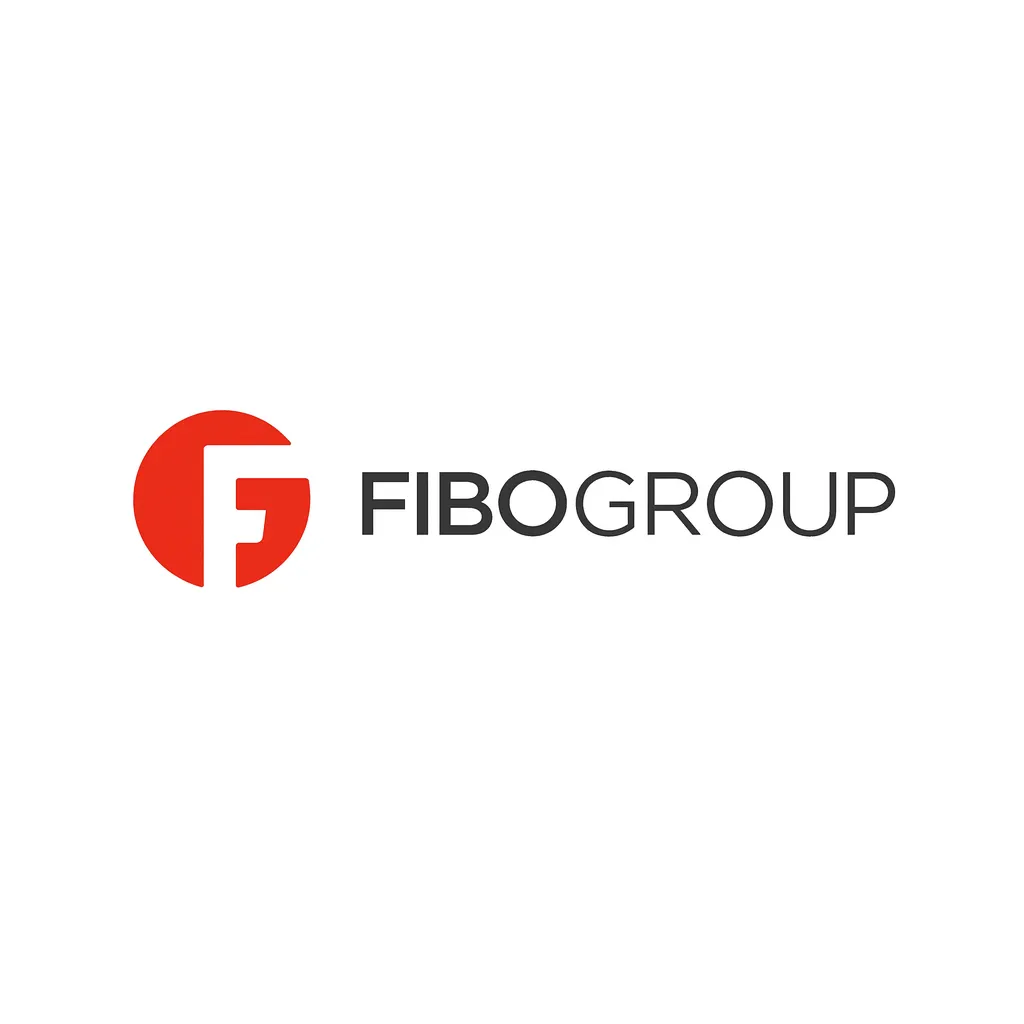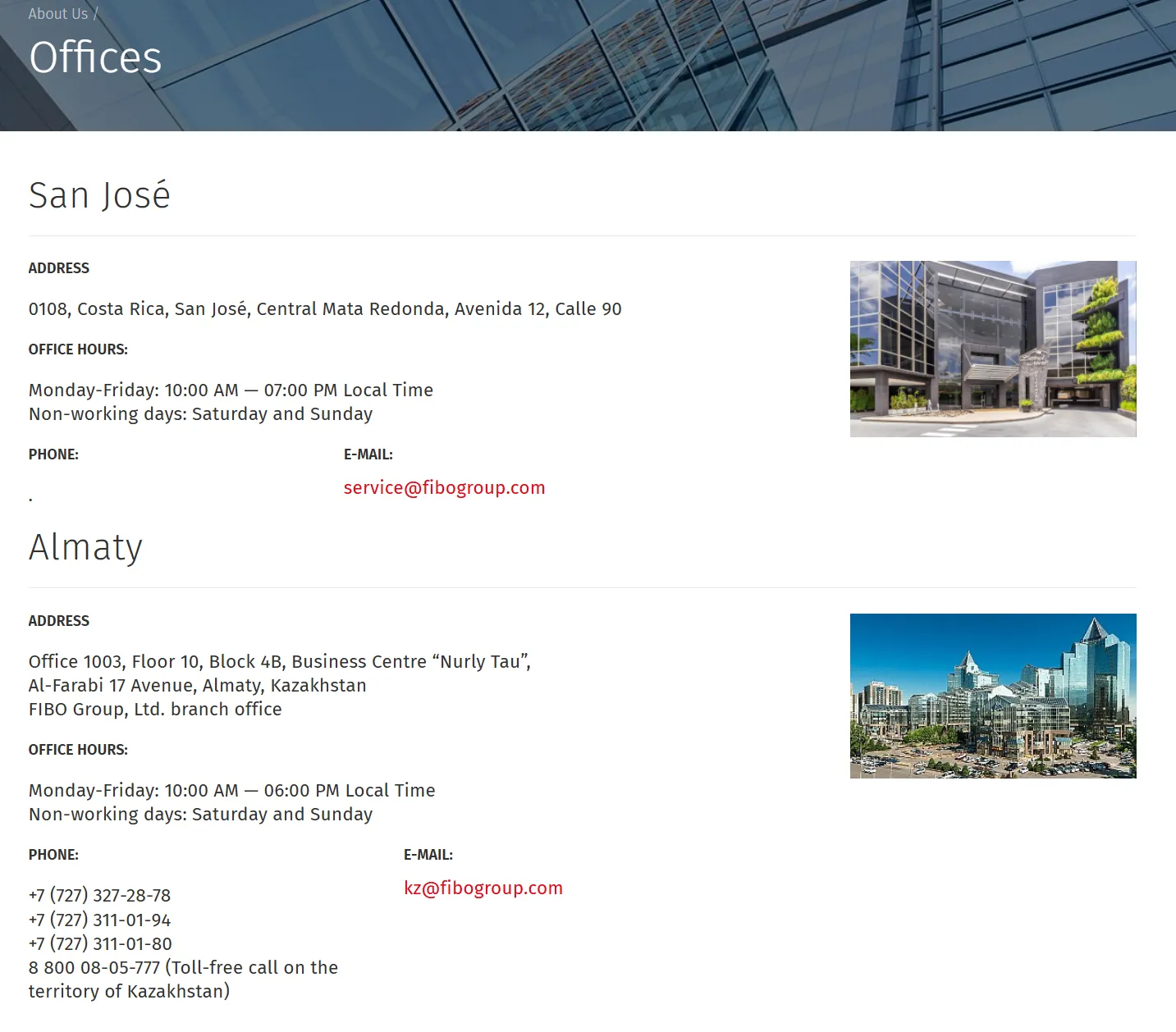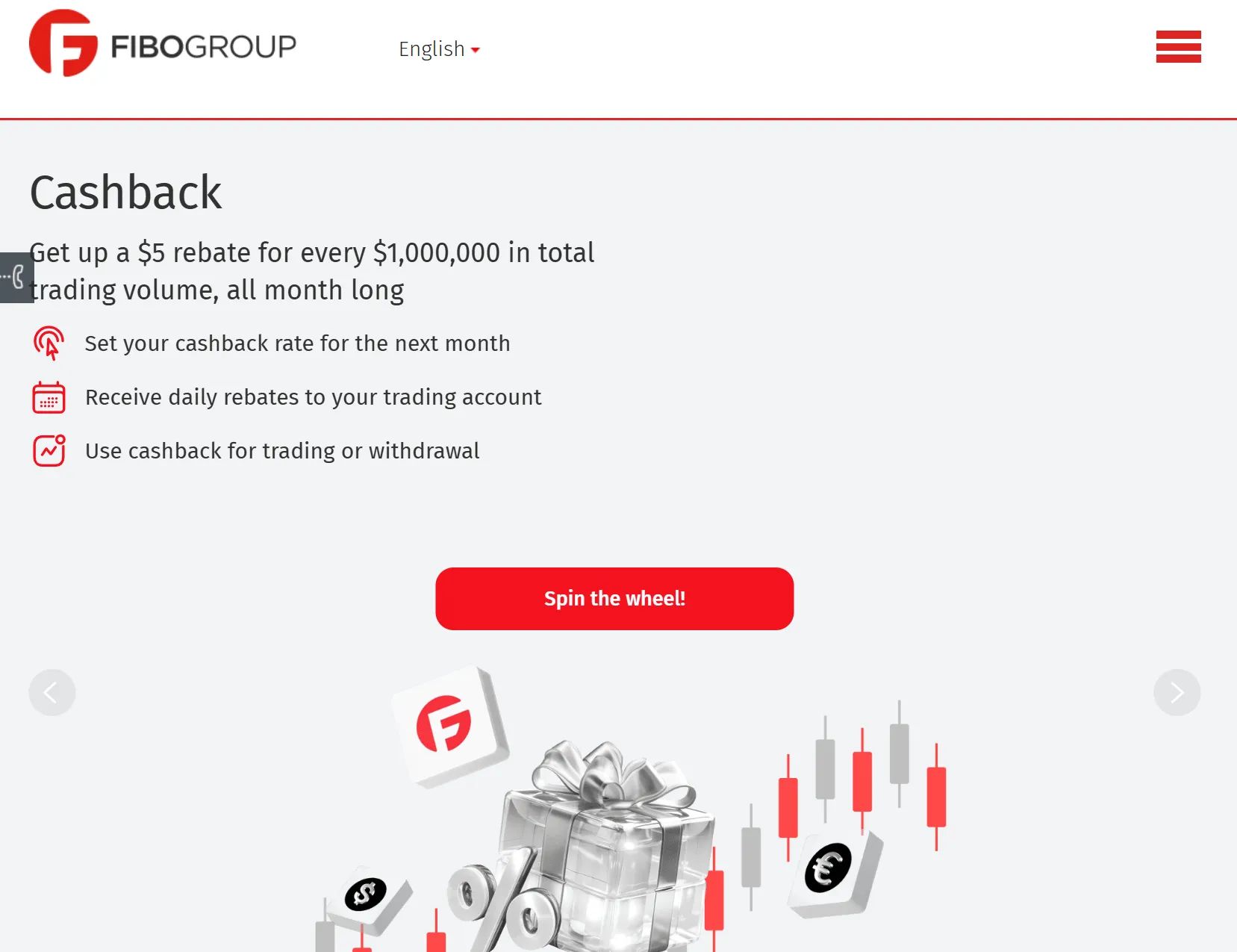 Normal Operation
Normal OperationFIBO Group
15-20Year
Basic Information
Country
AustriaMarket Type
foreign exchange|Stock|Crypto|CFDEnterprise Type
BrokerageService
Provides a variety of trading products and platforms, including foreign exchange, CFD, cryptocurrency, and platforms supporting MT4, MT5, cTrader, etc.Domain Registration Date
2004-07-30Business Status
Normal OperationCompany IntroductionWeb Analytics
Company Introduction
Founded in 1998 and headquartered in Vienna, Austria, FIBO Group (International Financial Holding FIBO Group) is a globally operating online forex and contracts for difference (CFD) broker. As one of the industry's early entrants, FIBO Group has long provided retail and institutional investors with a wide range of trading services, including forex, commodities, indices, precious metals, energy, and cryptocurrencies, across multiple platforms.
The company's core business is to provide investors with financial derivatives trading and investment solutions via the internet. Its operating model primarily relies on contracts for difference (CFDs) and leveraged trading, aiming to provide users with diverse market participation opportunities. Since its inception, FIBO Group has consistently survived market fluctuations and regulatory changes, becoming one of the most influential brands in the retail forex industry.
🌐Global layout and brand background
FIBO Group has an international strategy, with branches and representative offices across Europe, Asia, and the Commonwealth of Independent States. Its principal entities include Cyprus (FIBO Group Holdings Ltd, regulated by CySEC), the Virgin Islands (FIBO Group Ltd, offshore registered), and an operational office in Vienna, Austria.
This "dual identity" not only demonstrates its ability to comply with European regulatory frameworks, but also reveals its reliance on offshore entities for global expansion. Industry analysts believe that while FIBO Group has built a significant user base through its long-term brand development, its offshore structure has also made some investors cautious about fund security and transparency.
💹Trading products and services
FIBO Group offers a wide range of products, including foreign exchange currency pairs, indices, stock CFDs, commodities, energy, and major cryptocurrencies. The platform primarily supports CFDs, allowing investors to leverage short-term or medium-term trading.
The company supports MetaTrader 4 (MT4), MetaTrader 5 (MT5), and cTrader, catering to diverse trading styles. For users prioritizing technical analysis and automated trading, MT4/MT5's support for Expert Advisors (EAs) and a wide range of plug-ins offer significant convenience. Overall, its product offerings and platform structure meet the standards of international retail forex brokers.
💻Trading technology and platform experience
FIBO Group's platform technology is based on mainstream solutions, with execution efficiency and stability ranked above average in the industry. Its MT4/MT5 platforms are widely used by forex traders, ensuring a consistent and scalable trading experience.
However, compared to some emerging fintech platforms, FIBO Group's technology lacks innovation, relying primarily on the integration of established tools rather than developing its own platform. This may be a limitation for investors seeking a wide range of market tools or intelligent investment research services.
🛡️Regulatory compliance and fund security
FIBO Group faces a regulatory duality. On the one hand, its Cyprus entity holds a CySEC license and is regulated under the EU's MiFID II framework, providing client fund segregation and partial investor compensation. On the other hand, its Virgin Islands entity is regulated offshore, offering relatively limited investor protection.
This structure means that investors may face different regulatory safeguards when opening accounts in different regions. Although FIBO Group has over 20 years of operating history in the industry, fund transparency and compliance strength remain key issues for investors.
⚡Trading conditions and experience
FIBO Group offers a variety of account types, including low-spread and high-leverage accounts, to meet the needs of investors of all levels. Leverage levels are limited within the EU (1:30), while offshore accounts can reach up to 1:400, attracting traders with a higher risk appetite.
While this flexibility provides users with options, it also carries potential risks. Especially in a high-leverage environment, the probability of margin calls and capital losses increases significantly. For both beginners and more cautious investors, a clear understanding of risk management is essential.

🎓Customer support and value-added services
FIBO Group offers multilingual customer support via phone, email, and an online form. Its website also features educational content and market analysis to help users understand trading fundamentals and market trends.
However, compared to leading platforms, FIBO Group's educational and value-added services are more limited and targeted at the entry-level. For investors seeking professional investment research and in-depth market insights, these value-added services lack appeal.

⚠️Risk Warning and Platform Positioning
Forex and CFD trading are inherently high-risk products that can result in the complete loss of investors' principal. FIBO Group provides a risk disclosure on its website, reminding users to exercise caution when using leveraged instruments. However, its overall positioning suggests it is more suitable for investors familiar with trading rules and with a strong risk tolerance, rather than conservative users seeking stable returns.
🔍Comprehensive analysis and evaluation
In general, FIBO Group, as an international forex and CFD broker with a long history, has the following characteristics:
Established a long time ago (1998), it has a solid brand reputation in the retail foreign exchange industry;
The product line covers foreign exchange, commodities, stock CFDs and cryptocurrencies, and the platform supports MT4/MT5/cTrader;
There are differences in regulatory structures, with both EU-regulated entities and offshore registration risks;
Customer education and services are relatively limited, and technological innovation is insufficient.
Overall, FIBO Group is suitable for investors with some trading experience and a high risk tolerance. However, for users seeking high compliance, financial transparency, and in-depth value-added services, the platform still has certain limitations.
Selected Enterprise Evaluation
2.50
Total 2 commentsFIBO Group has been around since 1998 and offers MT4, MT5, and cTrader with a solid range of CFDs, but its reliance on offshore entities raises concerns about investor protection.
Reply
While the broker provides diverse products and flexible trading conditions, the lack of strong transparency and the use of high leverage make it more suitable for risk-tolerant traders than long-term investors.
Reply
~ There's nothing more ~
About FIBO Group's questions
Ask:Is FIBO Group regulated by a regulatory body?
Answer:Some FIBO Group entities are regulated by CySEC in Cyprus and adhere to the EU MiFID II framework, with certain fund segregation and investor compensation mechanisms in place. However, other entities are registered in offshore jurisdictions such as the British Virgin Islands (BVI), where regulatory oversight is less stringent. Investors should clarify their chosen entity before opening an account to assess the actual regulatory protections afforded.
Ask:What trading products and platforms does FIBO Group offer?
Answer:FIBO Group offers a wide range of products, including forex, stock CFDs, indices, commodities, energy, and cryptocurrency CFDs, primarily traded as contracts for difference (CFDs). Supported trading platforms include MT4, MT5, and cTrader, catering to diverse needs including manual trading, technical analysis, and automated strategies (EAs).
Ask:Is FIBO Group suitable for long-term, conservative investors?
Answer:While FIBO Group has a long history (founded in 1998) and offers a diverse product range and a mainstream platform, its business model relies heavily on CFDs and leveraged trading, which carries a high level of risk. This makes it more suitable for active investors with a strong risk tolerance and familiarity with trading mechanics. Conservative, long-term investors may want to exercise caution or consider alternative platforms with stricter regulation and greater transparency.
